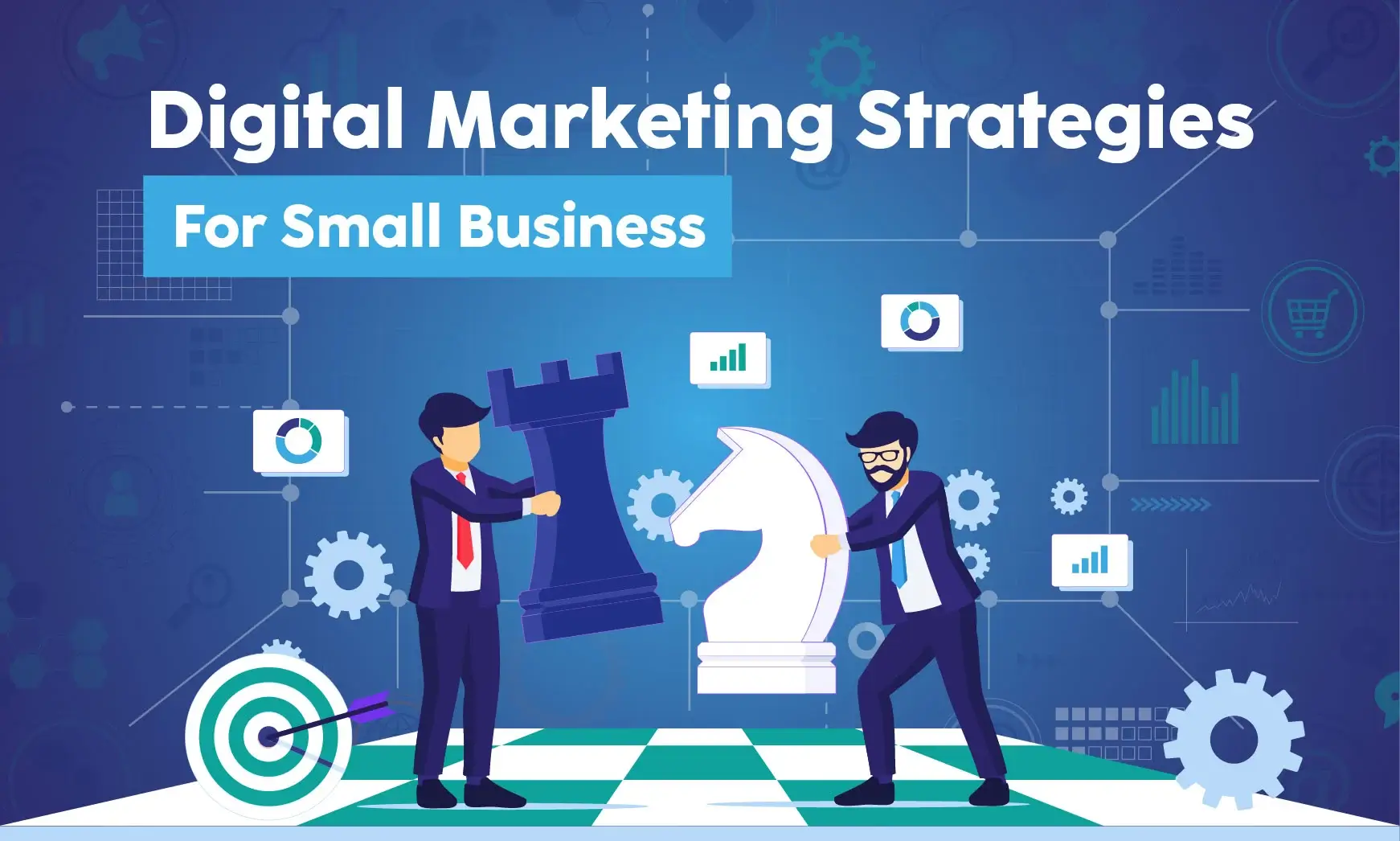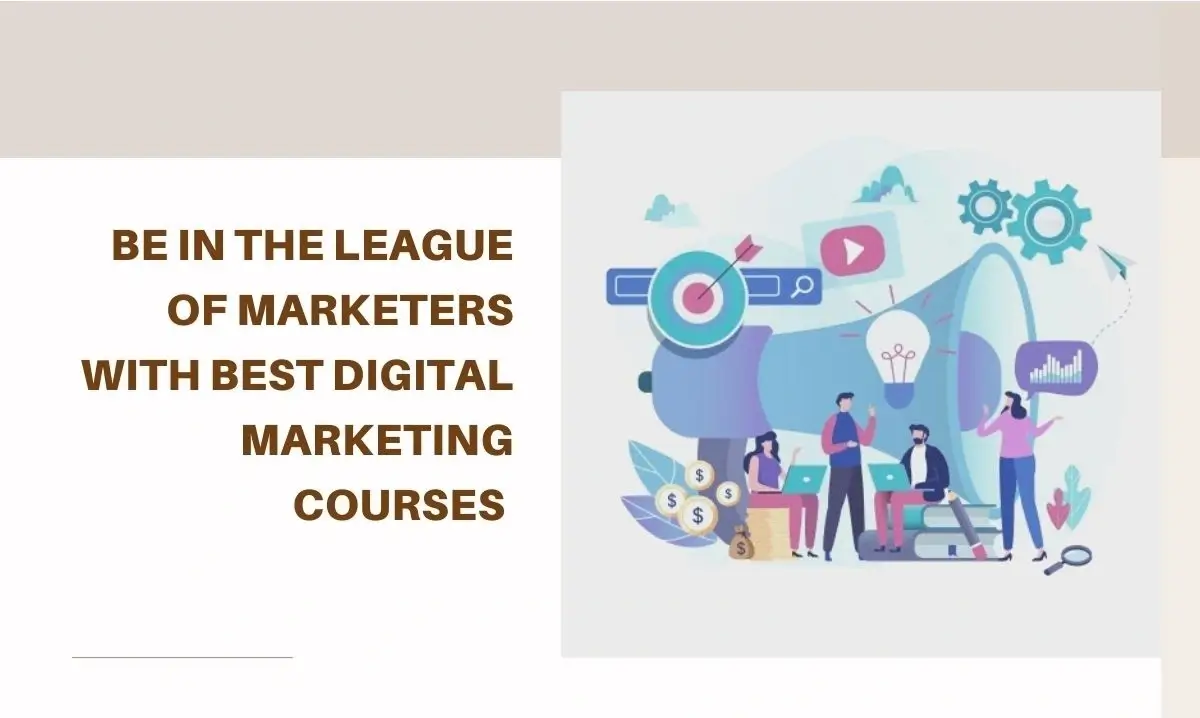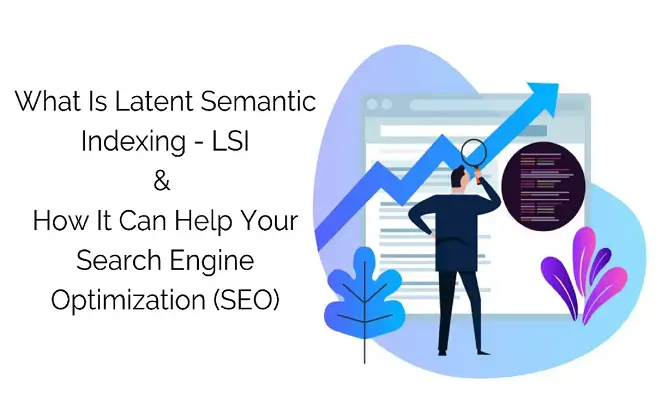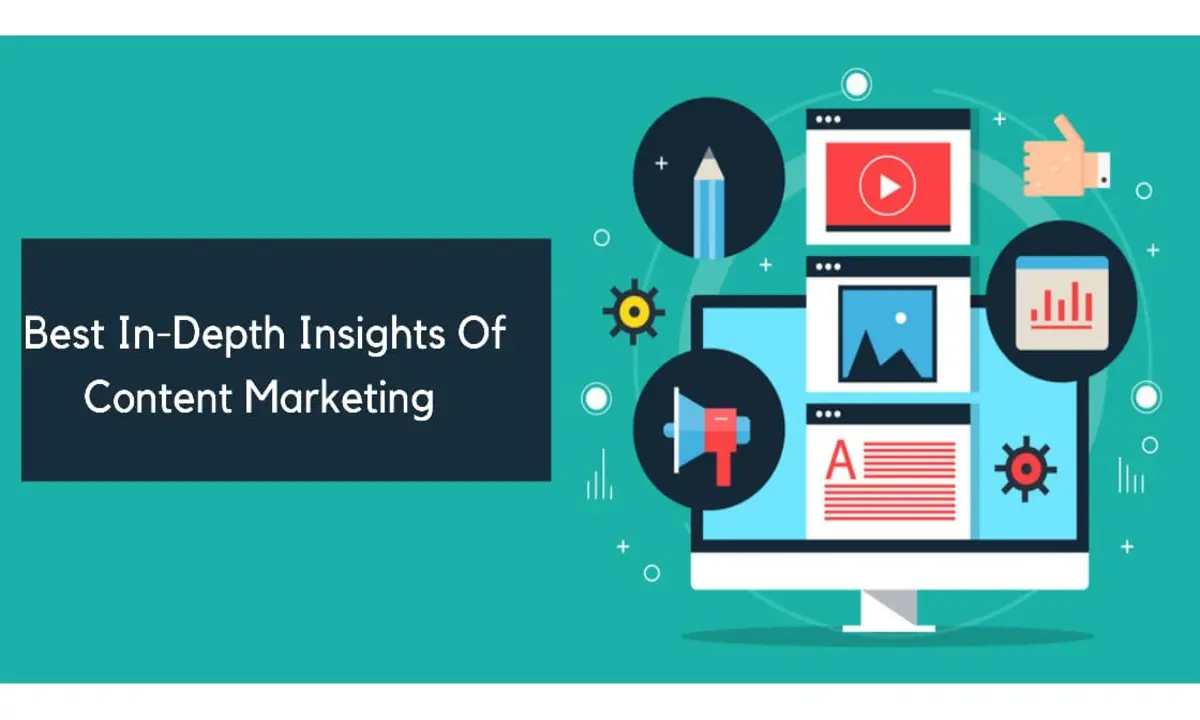
Suppose you are running a small grocery store or a small startup and are interested in reaching your nearby customers through the Internet. Then you need to follow the digital marketing strategies for small business to expand your business and stay competitive.
The right digital marketing strategy can help you expand your reach, boost brand awareness, and boost sales. This comprehensive guide explains the essential digital marketing strategies for small businesses. By the end of this article, you’ll have a clear roadmap to succeed in the digital sphere.
Let’s explore the different digital marketing strategies for small businesses that give your brand a strong presence in the market.
Table of Contents
-
- What is Digital Marketing?
- Understanding the Digital Marketing Landscape
- Defining Your Target Audience
- Building an Online Presence
- Content is King
- Leveraging Social Media
- Harnessing Email Marketing
- Pay-Per-Click (PPC) Advertising
- Mastering Search Engine Optimization (SEO)
- Online Reviews and Reputation Management
- E-commerce and Online Sales
- Measuring Success with Analytics
- Allocating Budget and Resources
- Adapting to an Ever-Changing Landscape
- Conclusion
What is Digital Marketing?
Digital marketing is a type of advertising and promotion that uses online platforms and technologies to connect with and engage a target audience. It includes a variety of strategies, such as website marketing, social media, email campaigns, SEO, content marketing, and online advertising.
The goal is to promote products, services, or brands and connect with potential customers online, driving awareness, engagement, and conversions. Digital marketing provides businesses with affordable and measurable ways to reach their target audience and analyze the effectiveness of their campaigns.
Understanding the Digital Marketing Landscape
The most important thing for a business owner is to understand the digital marketing landscape. How it will impact your business why it is the most demanding skill in today’s world by small business.
The Impact of Digital Marketing
The digital revolution has completely changed the business ecosystem, it means the way businesses connect with their customers. Digital marketing opens the geographical barriers for small businesses and enables them to reach globally
From social media to online advertising, digital marketing channels offer affordable ways to connect with customers.
Digital marketing is a powerful equalizer, enabling small businesses to target their audiences precisely. It empowers businesses with data and analytics that businesses can use to refine their digital marketing strategies for maximum reach and sales.
Why Digital Marketing is Vital for Small Businesses
Digital marketing is a necessity for small businesses for several reasons:
-
Cost-effectiveness
Instead of traditional marketing methods like TV ads and print nowadays digital marketing offers you more cost effective ads. For example, you can use social media to promote your business for free or at a very low cost.
-
Targeted advertising
With the optimization options, one can target more ideal and relevant customers. The ads are shown to the relevant customers who might be interested in your offerings. The chances of conversion in this case are high because, these audiences are interested in your products or services., which can lead to a higher return on investment (ROI).
-
Brand visibility
If you have established a strong digital presence then it can increase your brand visibility and credibility. When people see your business online, they are more likely to trust you and consider doing business with you.
-
Engagement
Always try to engage with your audiences through social media and content marketing. It will connect you directly with target audiences and create community and trust. When you interact with customers regularly, they are more likely to feel connected to your brand and become loyal customers.
-
Data-driven decisions
Digital marketing provides businesses with a wealth of data that can be used to measure campaign success and adapt strategies accordingly. This data can help businesses make better decisions about where to allocate their marketing budget and how to improve their campaigns.
Defining Your Target Audience
Creating Detailed Buyer Personas
Before embarking on a digital marketing campaign, it’s essential to understand your target audience. Buyer personas, which represent your ideal customers, can help you achieve this. These personas should include demographic information, preferences, pain points, and behaviors.
Create your buyer persona by keeping points in mind like age, gender, location, income level, and interests. By properly understanding your customers, you can create a better digital marketing strategy. It will ultimately help you in creating a better message for your brand.
Analyzing Customer Behavior
Analyze your existing customer data to understand their online behavior, such as where they spend their time, what platforms they use, and what content they engage with. Utilize this data to improve your digital marketing strategies.
Building an Online Presence
Website Development and Optimization
Your website is the foundation of your online presence. It’s where customers learn about your business, explore your products or services, and, ideally, make a purchase.
To maximize its effectiveness, make sure your website is:
-
- User-friendly: Easy to navigate and use on all devices.
- Mobile-responsive: Looks good and functions well on all screen sizes.
- Fast-loading: Pages load quickly and smoothly.
- SEO-optimized: Uses relevant keywords and meta tags to improve its visibility in search engine results pages (SERPs).
Optimizing your website for search engines (SEO) is a crucial step in increasing its visibility to potential customers.
This involves:
-
- Use relevant keywords throughout your website, including in the page titles, meta descriptions, and body text.
- Optimizing your meta tags, which are the snippets of text that appear below your website links in SERPs.
- You are improving your website’s structure, such as by creating clear and concise navigation menus and using internal links to connect related pages.By following these tips, you can create a website that is both user-friendly and SEO-friendly, helping you to attract more visitors and convert them into customers.
The Power of SEO
Search engine optimization (SEO) is a vital component of your digital marketing strategy. It involves optimizing your online content to improve its ranking in search engine results pages (SERPs). Effective SEO can drive organic (unpaid) traffic to your website.
SEO includes both on-page and off-page optimization. On-page optimization involves optimizing your website’s content, meta descriptions, and other on-site elements. Off-page optimization involves building high-quality backlinks to your website from other high-authority websites.
By investing in SEO, you can improve your website’s visibility in SERPs, attract more visitors, and generate more leads and sales.
Crafting Mobile-Friendly Websites
A mobile-friendly website is essential, as a significant portion of web traffic comes from mobile devices. Mobile optimization ensures that your site looks and functions well on smartphones and tablets. Additionally, Google favors mobile-friendly websites in its search rankings.
Content is King
The Magic of Blogging
Blogging is a powerful tool for small businesses. It allows you to:
-
- Showcase your expertise
- Share valuable insights
- Connect with your audience
A blog not only helps with SEO but also positions you as an industry authority. When you publish informative, engaging, and relevant content, you establish yourself as a trusted resource for your target audience.
Crafting Engaging Social Media Content
Social media platforms offer an opportunity to engage with your audience in real-time. To maximize your impact, create engaging and shareable content, such as posts, images, videos, and stories that resonate with your followers.
It’s also essential to maintain a consistent posting schedule to keep your audience engaged.
Video Marketing: The Future of Content
Video marketing is on the rise, and small businesses can’t afford to overlook it. It’s a powerful way to connect with a vast audience, thanks to the popularity of platforms like YouTube and TikTok.
Create video content that tells your brand’s story, explains your products or services, or provides valuable tutorials. Videos can be a great way to engage your audience visually and emotionally, and they can also help you to educate and inform potential customers.
This is considered the best digital marketing strategy for small businesses as you don’t need to invest a lot to achieve your goal. Just a good and relevant piece of content can drive traffic to your website.
Let’s move into the most powerful digital marketing strategy nowadays because millions of people are using it in one or another way.
Leveraging Social Media
Choosing the Right Platforms
Social media platforms vary widely, so it’s crucial to focus on the ones your target audience uses most. Consider factors like demographics, user behavior, and your business type to decide which platforms will give you the best results.
The Art of Engagement
Social media success is more than just posting content. It’s about engaging with your audience, responding to comments, and building a community. When customers feel engaged and valued, they’re more likely to become brand advocates.
Paid Advertising on Social Media
Social media platforms offer paid advertising options that allow you to target specific demographics, such as age, gender, location, interests, and behaviors. This can be a valuable addition to your digital marketing strategy, as it allows you to reach a more extensive and precisely defined audience than you could with organic social media marketing.
Hope now you can understand the power of social media in your digital marketing strategy. But it’s not the end there are a lot more digital marketing strategies for small businesses that are left to discuss.
Let’s dive into the remaining digital marketing strategy to learn and earn by growing business.
Harnessing Email Marketing
Building and Nurturing an Email List
Email marketing is still a powerful tool for small businesses. Building a list of interested subscribers is an ongoing process. Use sign-up forms on your website and social media to collect subscribers. Be clear about what kind of content subscribers will receive.
Crafting Effective Email Campaigns
To create successful email campaigns, segment your list, personalize your messages, and write engaging content. Use email marketing platforms to automate your campaigns and track your results to improve your strategy.
Email marketing campaigns can give a boost to your digital marketing strategy if applied correctly.
Pay-Per-Click (PPC) Advertising
The World of Google Ads
Google Ads is a pay-per-click (PPC) advertising platform that displays your ads when users search for relevant keywords on Google. It’s an effective way to drive traffic to your website and reach potential customers.
The Power of Facebook Advertising
With over two billion active users, Facebook is a treasure trove for advertisers. Facebook Ads allow you to target users based on their interests, behavior, and demographics. It makes a versatile platform for achieving various campaign goals, such as brand awareness and lead generation.
Mastering Search Engine Optimization (SEO)
On-Page Optimization
On-page SEO (search engine optimization) is the process of optimizing individual web pages to improve their ranking in search engine results pages (SERPs). This involves using relevant keywords, optimizing meta tags and headers, and improving the overall structure and content of the page.
Off-Page Optimization
Off-page SEO focuses on factors external to your website that affect your search engine rankings. This includes building high-quality backlinks from authoritative websites, promoting your content on social media, and engaging with influencers.
The Local SEO Advantage
Local SEO is a lifesaver for small businesses with a physical location. It helps your business show up in local search results, making it easier for potential customers to find you. Optimizing your Google My Business listing, building local citations, and encouraging customer reviews are essential components of local SEO.
Online Reviews and Reputation Management
Encourage Customer Reviews
Cheerful customer reviews boost trust and credibility. Encourage happy customers to leave reviews on platforms like Google, Yelp, and social media. A steady stream of positive reviews enhances your online reputation.
Handling Negative Feedback
Negative feedback is inevitable, but it can be an opportunity for improvement. Respond to negative reviews professionally and empathetically. Address concerns and showcase your commitment to customer satisfaction.
E-commerce and Online Sales
Building an E-commerce Website
E-commerce websites are crucial for businesses selling products online. The website design should be user-friendly and give a flawless shopping experience to customers. The website should consist of clear and consistent product descriptions, and navigation, and must offer secure payment options.
Setting Up Online Payment Systems
Secure and convenient payment options are crucial for online sales. The eCommerce website always makes sure that they offer a variety of payment options. For example debit, credit card, bank transfer, UPI, with high security measures such as SSL encryption and fraud detection tools.
Once the business maintains all the above-mentioned payment features then it creates a sense of assurance for customers for secured payment. It can increase customers’ loyalty and sales.
Measuring Success with Analytics
Key Performance Indicators (KPIs)
Key performance indicators (KPIs) are measurable values that track the success of your digital marketing campaigns. Examples include conversion rates, website traffic, and bounce rates. Choose the KPIs most relevant to your business goals.
The Role of Web Analytics
The free web analytics has a lot to say about customers’ behavior. Small businesses can use this digital marketing strategy for better visualization of user data. It will help to identify what’s working well and where improvements can be made.
Allocating Budget and Resources
Setting a Digital Marketing Budget
A well-defined budget helps ensure that your digital marketing efforts are cost-effective. Align your budget with your business goals and allocate resources accordingly.
In-House vs. Outsourced Marketing
Whether to manage digital marketing in-house or outsource it depends on your team’s expertise and resources. Both options have pros and cons, so choose the one that best meets your business needs.
Adapting to an Ever-Changing Landscape
Staying Informed and Agile
The digital marketing landscape is constantly changing, so it’s important to stay informed about the latest trends, tools, and algorithms. You must be agile and adapt your strategies to new developments to succeed.
Conclusion
This comprehensive guide will provide you with a solid understanding of the digital marketing strategies for small businesses that are needed to succeed. The digital world offers many growth opportunities, and small businesses can use their power to reach a larger audience and achieve their goals with the right strategies.
If you want to grab the attention of your audiences and convert them into your loyal customers then follow the mentioned digital marketing strategies for small businesses.
- Top 10 Digital Marketing Modules - September 9, 2022
- Top Digital Marketing Institutes in Kolkata with Placement Opportunities - April 25, 2022
- Email Marketing Plan: Building Your Blueprint for Success - February 18, 2022



